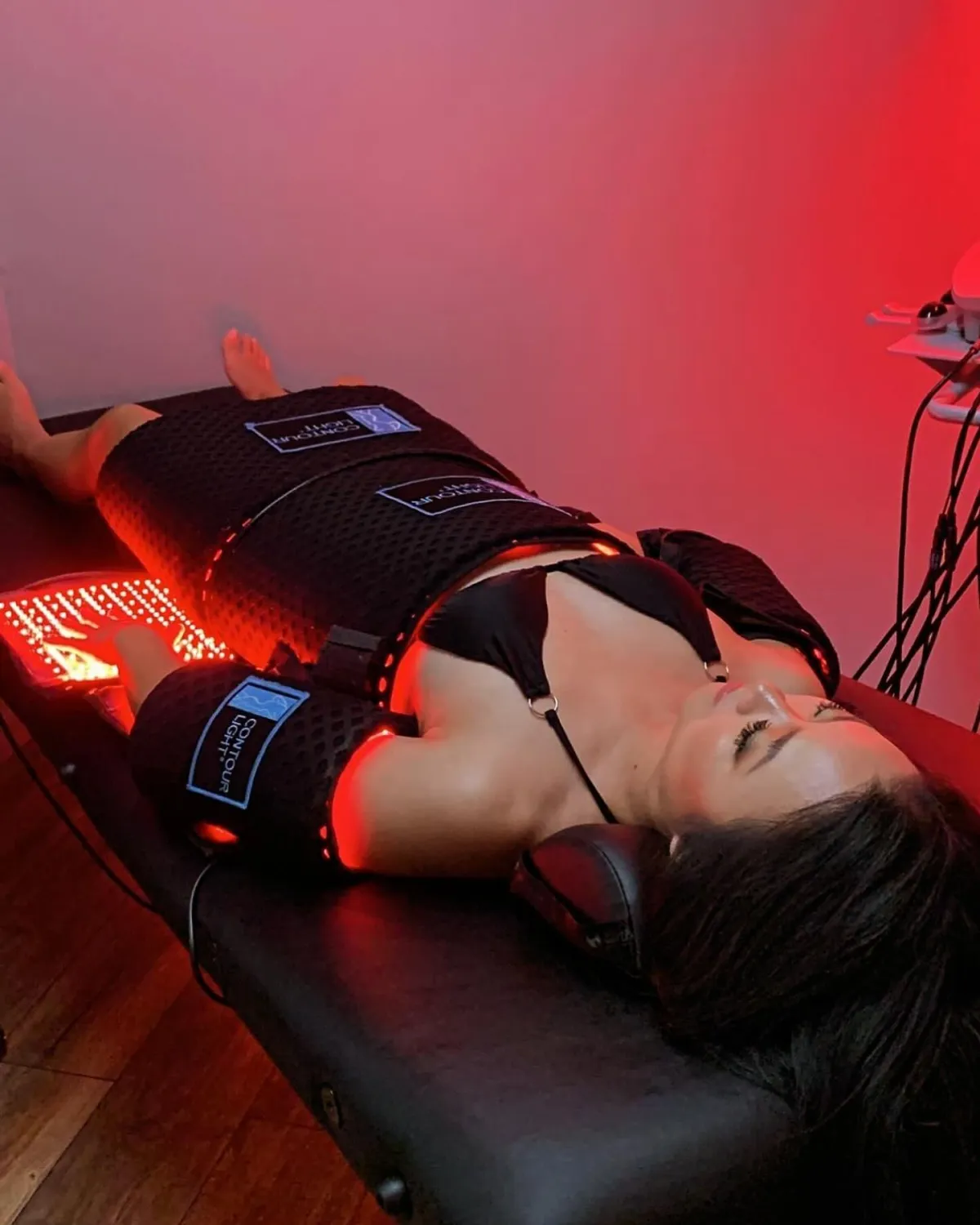
Ready to Look and Feel Younger? The Anti-Aging Effects of Contour Light Are No Joke
We all want to feel confident in our skin, have energy throughout the day, and stay vibrant as we age. But what if there was a gentle, non-invasive way to support these goals—without surgery, downtime, or harsh treatments?
Contour Light therapy is emerging as a popular wellness tool for those who want to support their body's natural anti-aging processes. From improving skin tone to boosting energy and circulation, the benefits go far beyond aesthetics.
Let’s explore how this innovative light-based technology can help you look—and more importantly—feel younger.

What Is Contour Light?
Contour Light is a non-invasive red and near-infrared light therapy that uses LED-powered panels to target areas of the body. This painless treatment promotes:
Fat reduction
Improved skin tone and texture
Increased collagen and elastin production
Cellular regeneration
Enhanced circulation and lymphatic flow
It’s like giving your body a recharge from the inside out.
✨ Anti-Aging Benefits of Contour Light
1. Tightens and Firms Skin
As we age, collagen and elastin production slows, leading to sagging skin and fine lines. Contour Light stimulates collagen synthesis, helping to restore elasticity and firmness—especially in areas like the face, neck, abdomen, and thighs.
2. Reduces the Appearance of Fine Lines and Wrinkles
Red light therapy has been shown to reduce signs of aging by improving blood flow to the skin and accelerating tissue repair. After a series of treatments, many users notice a smoother, more youthful glow.
3. Boosts Natural Energy
Near-infrared light penetrates deeper into the body’s tissues, supporting cellular energy (ATP) production. This means more energy, better circulation, and improved overall vitality.
4. Improves Skin Tone and Reduces Inflammation
Contour Light supports the body’s anti-inflammatory responses, helping with puffiness and uneven skin tone. Regular use may reduce redness and improve clarity—especially for those with sensitive skin.
5. Supports Lymphatic Drainage and Detox
The gentle warmth from the light also promotes lymphatic movement, helping your body flush out toxins and retain less water. The result? A leaner appearance and more radiant skin.

💡 Why People Are Loving Contour Light
Most people report:
No discomfort during the session
Noticeable inch loss after just a few treatments
Visible changes in skin texture and firmness
Increased motivation to pursue healthier habits
Sessions usually last about 25–30 minutes, and many describe it as relaxing and energizing at the same time.
🌿 A Gentle Boost for Your Wellness Journey
Whether you're preparing for a big event, trying to stay ahead of aging, or just want to feel more confident in your body, Contour Light offers a safe, science-backed way to support your wellness goals.
It’s not just about appearances—it’s about feeling recharged, confident, and strong at every stage of life.

📚 References
Barolet, D., & Boucher, A. (2010). Prophylactic low-level light therapy for the treatment of hypertrophic scars and keloids: A case series. Lasers in Surgery and Medicine, 42(6), 597–601.
Avci, P., Gupta, A., Sadasivam, M., et al. (2013). Low-level laser (light) therapy (LLLT) in skin: Stimulating, healing, restoring. Seminars in Cutaneous Medicine and Surgery, 32(1), 41–52.
Hamblin, M. R. (2016). Mechanisms and applications of the anti-inflammatory effects of photobiomodulation. AIMS Biophysics, 3(3), 337–361.
Lee, S. Y., Park, K. H., Choi, J. W., et al. (2007). A prospective, randomized, placebo-controlled, double-blinded, and split-face clinical study on LED phototherapy for skin rejuvenation. Lasers in Surgery and Medicine, 39(4), 319–326.
Whelan, H. T., Smits, R. L., Buchman, E. V., et al. (2001). Effect of NASA light-emitting diode irradiation on wound healing. Journal of Clinical Laser Medicine & Surgery, 19(6), 305–314.
